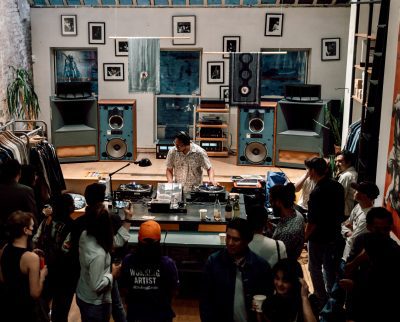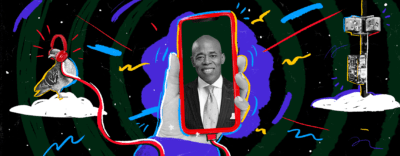So Are Millennials the New Baby Boomers Already? About Alex (or, The Little Chill), Teenage Mutant Ninja Turtles, and Nostalgia
![Hey guys if THE BIG CHILL was made today they'd all have gone to college in the 90s and the soundtrack would ha— [/brain explodes splattering horrible horrible blood onto monitor]](https://www.bkmag.com/wp-content/uploads/2014/08/thebigchillcast.jpg)
Hey guys if THE BIG CHILL was made today they’d all have gone to college in the 90s and the soundtrack would ha— [/brain explodes splattering horrible horrible blood onto monitor]
Mounting a millennial Big Chill is not a terrible idea. The Big Chill itself, recently released on Criterion Collection Blu-ray, has an irresistible hook, not unlike The Breakfast Club (released the following year, with a similarly endless afterlife). Also not unlike The Breakfast Club, the execution is far from flawless. In place of that John Hughes brand of sensitive conformity, Kasdan subs in some Baby Boomer solipsism about (among other things) how vastly superior the hits of the sixties and early seventies are to then-today’s (but really, always-today’s) claptrap: Jeff Goldblum’s journalist character confirms his sell-out status by offering that plenty of good music has come out since the early seventies, an observation met with a stony, pointed silence. But through that Boomer filter, The Big Chill has insight into how people grow apart, be it in tandem or at jutting angles. And those soundtrack oldies are actually well-used, as when Kasdan transitions from an organ version of “You Can’t Always Get What You Want” playing at Alex’s funeral into the Rolling Stones cut, played nearly in full during the transition from church to reception. Throughout the movie, Kasdan keeps his scenes short and snappy, cutting away without easy resolutions. Despite the additional three decades of self-awareness and distance from Boomer domination, The Big Chill is a far more interesting rumination on nostalgia and disappointment and life, man, than About Alex.
While Chill‘s ensemble features a number of stars who would go on to wonderfully idiosyncratic careers—Kevin Kline, Glenn Close, Jeff Goldblum, William Hurt—Zwick’s brings together a group of skilled comic actors from TV: Parks and Recreation‘s Plaza, New Girl‘s Max Greenfield, and Suburgatory‘s Jane Levy (in the Meg Tilly role of outsider girlfriend). They’re more than up to the task of a heartfelt ensemble comedy, but they’re burdened with Zwick’s overwriting: rants that pointedly Express Philosophies about Millennial Life (poor Greenfield has to contend with a lot of these), exposition dumps about shared history, and endless heart-to-hearts. Without good dialogue, a limited-location reunion movie like this can get claustrophobic fast; I had to bolt the Tribeca Film Fest screening a few minutes before the end for scheduling reasons, and I felt the relief of a taxi showing up early to take me to the airport.
The characters in About Alex talk a lot about social media (without necessarily showing much insight into how people actually use it); they talk less about nostalgia (being less removed from college than their Chill counterparts), but it’s easy to imagine Greenfield’s character getting worked up over the recycling of a millennial nostalgia property like Teenage Mutant Ninja Turtles, which has been revived again by Michael Bay’s production company. As with The Big Chill, which came out when I was about three, I missed the original live action Teenage Mutant Ninja Turtles during its theatrical run and, indeed, for many years afterward (I was nine when it first came out, and of course a nine-year-old not seeing Ninja Turtles is not quite as explicable as a three-year-old bypassing The Big Chill, but I had not yet developed a taste for cinematic violence or comic books that didn’t star ducks, and also mistook what I guess was originally the intentional stupidity of big fighting turtles for actual stupidity—yes, a crank even at nine). I caught up with Ninja Turtles ’90 earlier this year, though I have not watched the sequels despite frequent proposals (my wife would say threats) to do so. The characters’ cinematic history should make the new version seem especially durable: it comes pre-bastardized, because the earlier film isn’t much good at all. It has some vivid puppetry courtesy of Jim Henson’s Creature Shop, and an interestingly murky, dingy vibe for a children’s film, but it’s as simpleminded as any number of Saturday morning cartoons (including, uh, Teenage Mutant Ninja Turtles: also a not-very-good TV series. Maybe several, though I can only vouch for the low quality of the first cartoon). The Turtles debuted as a parody of Frank Miller grit, but hardly anyone remembers them this way, so the idea that the Bay-produced movie, bad as it may be, could ruin anything is laughable. What’s to ruin?
Of course, it will still be disappointing if Teenage Mutant Ninja Turtles is bad. It is almost always disappointing when movies are bad. We want movies to be good (right?), and to enjoy them (right?) on some level. But if the Baby Boomers of The Big Chill are a little insufferable with their oldies worship, well, goddamn, what does that make twenty and thirtysomethings who actually think that any post-comics incarnations of the Ninja Turtles are worth even a shilling more than their happy memories? These memories can remain intact regardless of what Michael Bay does; Michael Bay has no dominion over your memories, yet. Millennial-bashing has become stupidly fashionable, but making faux-critiques like About Alex or mooning over Ninja Turtles sure doesn’t help a generation’s case for itself. Maybe my crankiness is Boyhood‘s fault: it’s so adept at whisking us through its protagonist’s twelve growing-up years that something as clumsily studied as About Alex seems even more stilted, and something like Ninja Turtles seems even more ephemeral (Boyhood treats Star Wars with such gentle, uncynical, and ultimately passing affection that I practically swooned). Maybe it’ll take another five or ten years before we get a movie about aging millennials having a crisis of faith over Saturday morning cartoons.
You might also like 



















